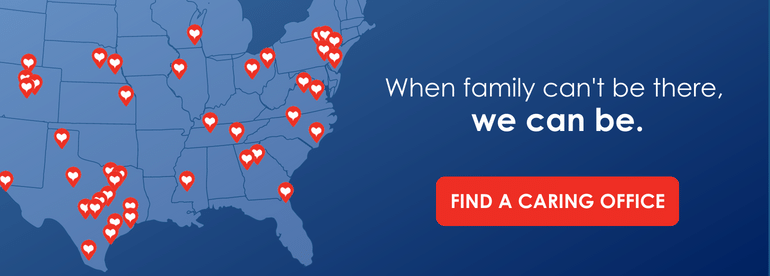There are approximately 53 million Americans who provide unpaid care for their loved ones. Many of these individuals provide care for a parent, which can pose some unique challenges. If you are one of the many Americans caring for an aging parent, here are some of the top challenges you might face. By being aware of these difficulties, you can better prepare for your caregiving responsibilities.
Changing Dynamics in the Family
One of the biggest challenges of caring for a parent is the change in the family dynamic. When you take on the responsibility of caregiver, the roles of parent and child are reversed. Now you are the one responsible for the welfare of your aging loved one. But the balance of respecting your loved one’s wishes and making sure they get proper care can be tricky.
Your loved one may still want to maintain a certain level of independence and authority as your parent. They might even criticize how you care for them. However, their health condition may leave them completely dependent on your care and unable to safely make certain decisions on their own. At the same time, you may feel uncomfortable in your role as caregiver. Helping your parent with some personal care tasks, like using the bathroom, can feel awkward or embarrassing.
As you care for your parent, your dynamics with other family members may change too. You might not be able to spend as much quality time with your partner, for example. Your siblings may also turn to you with their concerns about your parent. This could put some strain on your relationship with those closest to you.
As a family, you may struggle to define boundaries and establish new dynamics. But with time and open communication, it’s possible and even healthy!
RELATED CONTENT: Is Family Caregiving Ruining Your Relationship with Your Siblings?
Financial Strain
Many family caregivers are unpaid. They freely give of their time and service to help their parents. Some family caregivers are forced to reduce their working hours or even quit their jobs altogether to provide the attention their loved one needs.
Additionally, as parents age, they may move in with their adult child. While this can make things easier logistically, it can increase the bills that a family caregiver pays.
For example, electricity bills might go up since someone is at home with the lights on all day. The home may use more water since there are additional individuals who need to shower. And grocery bills could increase as a family caregiver buys enough food for their parent too.
Older adults requiring care are also likely to have health issues that come with prescriptions and doctor’s appointments. They may experience a decline in health and have to go to the hospital, which can become quite costly — even with insurance.
If the parent is not able to contribute financially, these costs could add up and put financial strain on their family.
Time Management
Family caregivers spend an average of 24 hours per week caring for their loved one. As family caregivers struggle to get everything done, they are torn between working, caring for their own kids, and caring for their parents. It can be difficult to balance responsibilities and determine priorities. As we mentioned, many family caregivers decide to leave the workforce completely or reduce hours to help meet family responsibilities.
Often, the added responsibilities of caregiving also limit time for self-care. Family caregivers forego vacations and give up hobbies so they have more time to devote to their loved one. But this can have negative impacts on their mental health.
Time management can be stressful and may be one of the biggest challenges you face as a family caregiver. However, it’s important to set your priorities and leave some time for yourself.
RELATED CONTENT: Essential Self-Care Tips for the Family Caregiver
Isolation & Depression
Because caregiving doesn’t leave you much free time, you might feel isolated from family and friends. It can become discouraging to constantly turn down opportunities to socialize because of your responsibilities. Socializing is actually an important part of your mental health, so those feelings of isolation can quickly turn to depression.
Family caregivers are naturally at high risk for depression because of the emotional and physical demands of caring for a parent. However, family caregivers can be proactive in preventing depression by finding caregiver support groups, prioritizing self-care and socialization, and finding techniques to reduce day-to-day caregiver stress.
Dealing with Medical Issues
As a family caregiver, you are thrown into the medical world and may like you’ve lost your bearings. You might not know anything about congestive heart failure yet find yourself caring for a parent with this heart condition. It can be difficult and confusing to know how to care for certain conditions, like Alzheimer's disease. But there are plenty of medical professionals and resources that can help.
Take advantage of your parent’s care team. Talk to their doctors and try to understand the conditions your parent has and get the details of their care plan. If you aren’t sure how to do something properly, ask! While online resource and support groups can be valuable tools, only your parent’s medical professionals will understand the full scope of their health and care needs.
With all of the challenges of providing long-term care for a parent, you deserve a break every now and then. Caring Senior Service provides short-term and long-term caregiving services, so you can go run errands or take a vacation without having to worry about your mom or dad. Our respite care service can help you recharge and regroup so you can return to caregiving with vigor and enthusiasm. Just reach out to your local Caring office to get started.


